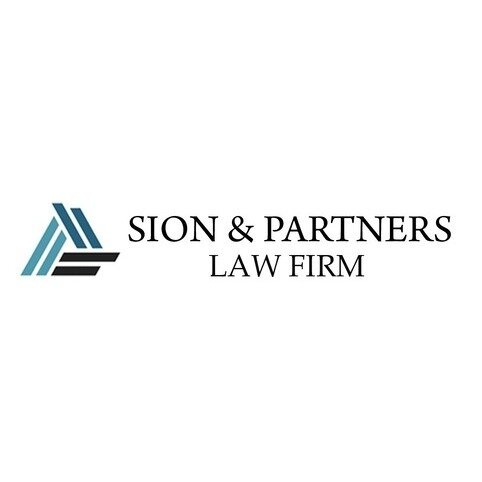Best Arrests & Searches Lawyers in Kazakhstan
Share your needs with us, get contacted by law firms.
Free. Takes 2 min.
Or refine your search by selecting a city:
List of the best lawyers in Kazakhstan
About Arrests & Searches Law in Kazakhstan
Arrests & Searches Law in Kazakhstan govern the procedures and restrictions around the detention of individuals by law enforcement authorities, as well as the search of their persons, properties, or vehicles. These laws are designed to protect the rights of individuals while allowing for the effective enforcement of the law.
Why You May Need a Lawyer
There are several situations where you may need the assistance of a lawyer in Arrests & Searches in Kazakhstan. These include being wrongly arrested or subjected to an unlawful search, needing to understand your rights during an arrest, or seeking legal representation in court for related offenses.
Local Laws Overview
In Kazakhstan, the Code of Criminal Procedure regulates the procedures for arresting individuals and conducting searches. Individuals have the right to legal counsel during arrest and may challenge the legality of a search in court. It is important to be aware of your rights under the law and seek legal advice if you believe they have been violated.
Frequently Asked Questions
1. What are my rights during an arrest in Kazakhstan?
During an arrest in Kazakhstan, you have the right to be informed of the reasons for your arrest, to remain silent, and to have a lawyer present during questioning.
2. Can the police conduct a search without a warrant?
Police in Kazakhstan may conduct a search without a warrant in certain circumstances, such as if there is imminent danger or risk of evidence being destroyed.
3. How can I challenge the legality of a search?
You can challenge the legality of a search in court by filing a complaint and presenting evidence that your rights were violated during the search.
4. What should I do if I believe I have been wrongfully arrested?
If you believe you have been wrongfully arrested in Kazakhstan, contact a lawyer immediately to discuss your options for challenging the arrest and seeking redress.
5. Are there time limits for how long I can be held in custody?
In Kazakhstan, individuals can be held in custody for up to 72 hours before being either released or brought before a judge for a decision on further detention.
6. Can I refuse to cooperate with a search?
You have the right to refuse to cooperate with a search in Kazakhstan, but it is important to do so in a respectful manner to avoid escalating the situation.
7. What should I do if I am being arrested?
If you are being arrested in Kazakhstan, remain calm, ask to see the arrest warrant, exercise your right to remain silent, and request a lawyer to be present during questioning.
8. Can I be arrested for a misdemeanor offense?
Yes, individuals in Kazakhstan can be arrested for misdemeanor offenses, but the procedures may differ from those for more serious crimes.
9. How can I find a lawyer to help me with an arrest or search case?
You can contact the Kazakhstan Bar Association or legal aid organizations for assistance in finding a qualified lawyer to help you with an arrest or search case.
10. What are the possible consequences of an unlawful search or arrest?
An unlawful search or arrest in Kazakhstan may lead to the exclusion of evidence in court, the dismissal of charges, or potential civil claims for damages against the authorities involved.
Additional Resources
For more information on Arrests & Searches in Kazakhstan, you can consult the Ministry of Internal Affairs or the Ministry of Justice websites for official guidelines and resources. Legal aid organizations such as the Kazakhstan Bar Association can also provide assistance in finding a lawyer.
Next Steps
If you require legal assistance in Arrests & Searches in Kazakhstan, contact a qualified lawyer who is experienced in handling such cases. Be sure to provide them with all relevant details and documentation to help them evaluate your situation and provide you with the best possible advice and representation.
Lawzana helps you find the best lawyers and law firms in Kazakhstan through a curated and pre-screened list of qualified legal professionals. Our platform offers rankings and detailed profiles of attorneys and law firms, allowing you to compare based on practice areas, including Arrests & Searches, experience, and client feedback.
Each profile includes a description of the firm's areas of practice, client reviews, team members and partners, year of establishment, spoken languages, office locations, contact information, social media presence, and any published articles or resources. Most firms on our platform speak English and are experienced in both local and international legal matters.
Get a quote from top-rated law firms in Kazakhstan — quickly, securely, and without unnecessary hassle.
Disclaimer:
The information provided on this page is for general informational purposes only and does not constitute legal advice. While we strive to ensure the accuracy and relevance of the content, legal information may change over time, and interpretations of the law can vary. You should always consult with a qualified legal professional for advice specific to your situation.
We disclaim all liability for actions taken or not taken based on the content of this page. If you believe any information is incorrect or outdated, please contact us, and we will review and update it where appropriate.
Browse arrests & searches law firms by city in Kazakhstan
Refine your search by selecting a city.








